The 15 Best Recession-Resistant Stocks to Buy
There’s little question as to what makes the most recession-resistant stocks to buy so resilient.


Profit and prosper with the best of Kiplinger's advice on investing, taxes, retirement, personal finance and much more. Delivered daily. Enter your email in the box and click Sign Me Up.
You are now subscribed
Your newsletter sign-up was successful
Want to add more newsletters?

Delivered daily
Kiplinger Today
Profit and prosper with the best of Kiplinger's advice on investing, taxes, retirement, personal finance and much more delivered daily. Smart money moves start here.

Sent five days a week
Kiplinger A Step Ahead
Get practical help to make better financial decisions in your everyday life, from spending to savings on top deals.

Delivered daily
Kiplinger Closing Bell
Get today's biggest financial and investing headlines delivered to your inbox every day the U.S. stock market is open.

Sent twice a week
Kiplinger Adviser Intel
Financial pros across the country share best practices and fresh tactics to preserve and grow your wealth.

Delivered weekly
Kiplinger Tax Tips
Trim your federal and state tax bills with practical tax-planning and tax-cutting strategies.

Sent twice a week
Kiplinger Retirement Tips
Your twice-a-week guide to planning and enjoying a financially secure and richly rewarding retirement

Sent bimonthly.
Kiplinger Adviser Angle
Insights for advisers, wealth managers and other financial professionals.

Sent twice a week
Kiplinger Investing Weekly
Your twice-a-week roundup of promising stocks, funds, companies and industries you should consider, ones you should avoid, and why.

Sent weekly for six weeks
Kiplinger Invest for Retirement
Your step-by-step six-part series on how to invest for retirement, from devising a successful strategy to exactly which investments to choose.
There’s little question as to what makes the most recession-resistant stocks to buy so resilient. Many of them offer products that Americans simply can’t go without, or that are much more attractive when money is tight.
What’s less certain is when investors will need these companies.
The man who predicted the dot-com crash of 2000 and the housing crisis that led to the most recent recession believes the odds of a 2020 recession are less than 50%. “Whether it’s coming next year, I can’t be sure,” Nobel Prize-winning economist Robert Shiller told the Financial News on Sept. 9.
However, a National Association for Business Economics survey found that while economists are modelling a 20% chance of recession by mid-2020, they put the odds at 69% by mid-2021. They also widely see GDP growth slowing from 2.9% in 2018 to 2.3% this year, then to just 1.8% in 2020.
Some are even more pessimistic. Also in September, Jeffrey Gundlach – CEO and founder of DoubleLine Capital LP, a Los Angeles-based investment firm with $140 billion in assets under management – said he believes there’s a 75% chance of a recession before the 2020 presidential election.
Here are 15 top recession-resistant stocks to buy if you want to get ahead of the risk. Among the things you should know about recessions: The organization in charge of actually determining whether a recession has occurred typically needs six months to do so. Investors won’t know it’s happening until it has been underway for quite some time. So if you’re looking to protect your portfolio against this risk, you’ll want to lean toward being early rather than late.
Data is as of Oct. 7. Dividend yields are calculated by annualizing the most recent payout and dividing by the share price.

Walmart
- Market value: $333.4 billion
- Dividend yield: 1.8%
In times of recession, companies that sell low-priced merchandise typically perform better than those with expensive products. No wonder then, that Walmart (WMT, $117.23) delivered a total return (price plus dividends) of 20% in 2008 while the S&P 500 registered a loss of 37% with dividends included.
While the nature of its business would bode well for its resilience in another recession, Walmart still must deliver the goods. That might be considerably difficult for a stock that’s trading near all-time highs, but Strategic Wealth Partners CEO Mark Tepper still has faith in the stock.
“Our favorite staple is Walmart. A huge portion of their business is groceries and people need to eat regardless of the direction of the economy,” Tepper told CNBC in early September. “And in a low-margin business like groceries, it’s all about volume, and they’re doing everything they can to boost value – rolling out delivery, curbside pickup, all that stuff is helping to boost volume. So I think there’s more upside with Walmart.”
Walmart appears poised to do well, recession or not. Its e-commerce arm, for instance, continues to gain traction. In the second quarter ended July 31, Walmart U.S. saw its ecommerce revenues increase 37%, with strong online grocery sales contributing to the big gain. In addition, its two-year stacked U.S. same-store sales grew by 7.3% in the second quarter – the best growth in more than a decade.
And it’s a fact that Walmart’s grocery business will insulate it to a certain extent during a recession. So either way, WMT stock has investors covered.
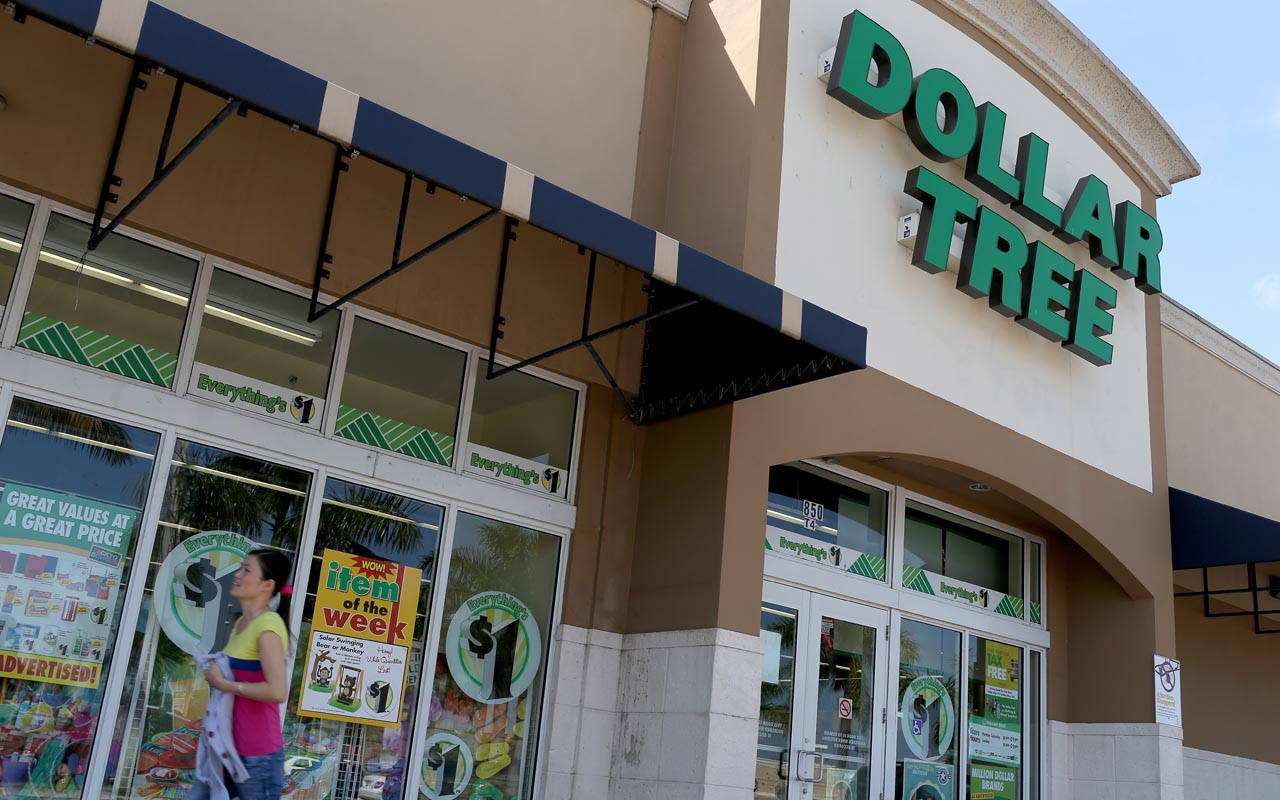
Dollar Tree
- Market value: $26.5 billion
- Dividend yield: N/A
- Dollar Tree (DLTR, $112.16), which fits in the same low-cost theme as Walmart, gained 61% in 2018. That would be an impressive return in any year, but it’s downright miraculous when compared to the broader market’s plight.
Dollar Tree was a much smaller company at that point, with just 3,591 stores and $4.6 billion in annual revenue as of its fiscal year ended Jan. 31, 2009. Today, with 15,115 stores and $23.3 billion in trailing 12-month revenue as of Aug. 3, it owns a considerably larger portion of the country’s discount stores.
There’s another thing it didn’t have back in 2008: Family Dollar stores, which DLTR acquired for $8.5 billion in July 2015. That hasn’t been a boon, however. DLTR has struggled mightily to integrate Family Dollar, which sells products between $1 and $10. Dollar Tree sells everything at a fixed $1.
Dollar Tree currently is in the process of renovating its Family Dollar stores. To date, 1,000 of the more than 8,000 stores have been completed. Dollar Tree CEO Gary Philbin told Mad Money host Jim Cramer in September that Family Dollar’s same-store sales in the last three quarters have grown 1.4%, 1.9% and 2.4%, suggesting the renovations are working.
As far as Dollar Tree’s place among recession-resistant stocks to buy, its quality is obvious. It offers goods at extremely low prices, so a recession should make its typical customer a more frequent visitor … and bring new customers into its stores.
But good times and bad, Dollar Tree seems destined to perform. “I think our customer, with unemployment (being low), has had a better opportunity to have a steady job. I find our customers are often one paycheck away from not doing so well,” Philbin told Cramer. “I think what we offer them is just a way of saving money, which is so important to them.”
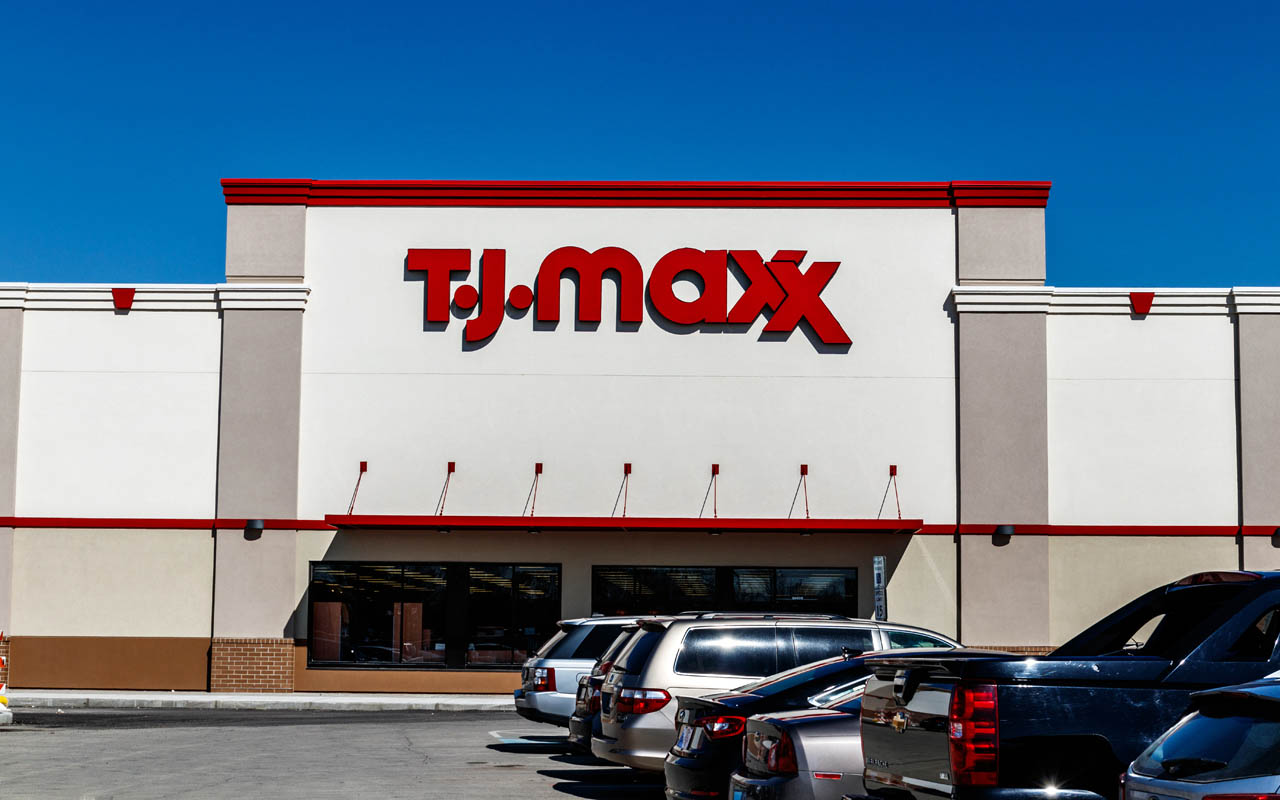
TJX Cos.
- Market value: $67.4 billion
- Dividend yield: 1.7%
Discount department chain Ross Stores (ROST) notched a nearly 18% total return in 2008. Its biggest competitor, TJX Cos. (TJX, $55.73), had a more difficult time navigating the last recession, losing 27.4%. That’s better than the market, but significantly worse than its peer.
That said, TJX may have a much better chance of outperforming both during the next recession.
Like most retailers, TJX Cos. – which includes T.J. Maxx, Marshalls, HomeGoods and other brands – goes through ebbs and flows. The off-price retailer currently is experiencing a bit of a slowdown in same-store sales. Its second-quarter “comps” in the second quarter ended Aug. 3 were just 2% higher, versus a 6% gain in the year-ago quarter. But long-term, TJX has always found a way to keep growing its business.
On Sept. 25, TJX announced the launch of Marshalls.com, the banner’s new online store. It promises to provide “a constantly changing selection of the trends shoppers want right now.” Interestingly, TJX has been doing a better job than most retailers at fending off Amazon with its in-store appeal. But Marshalls.com it will have a “curated” feel to it, giving shoppers first crack at a mix of offerings not available in every store.
E-commerce for Marshalls has been on the company’s radar for some time. “Our strategy is to maximize multi-channel engagement and drive incremental sales,” CEO Ernie Herrman said in February. “A high percentage of our mix is differentiated from online versus what’s in the stores. And we find that that is the number one reason that we can get an incremental build off the business and not have cannibalization or lose visits to the store.”
As investors continue to move to defensive stocks in anticipation of a recession, UBS analysts believe that TJX’s “value-for-money offering” will allow it to continue to take market share from other retailers without the same value proposition.

McDonald’s
- Market value: $160.9 billion
- Dividend yield: 2.4%
If there’s one thing people aren’t going to give up in a recession, it is the occasional Big Mac at McDonald’s (MCD, $211.92).
The sentiment might seem facetious, but if you look at the fast-food giant’s sales results in 2008 and 2009, you’ll see that McDonald’s didn’t suffer much from the Great Recession.
In 2009, the company’s global same-store sales grew by 3.8%, boasting growth across all operating regions. That included a 2.6% improvement in the U.S., where it generated 35% of that year’s overall revenues. A year earlier, in 2008 – which accounted for the bulk of the recession – McDonald’s American same-store sales grew 4%.
Let’s fast-forward to 2019.
Sales are gaining momentum in the U.S. as the company continues to roll out its Experience of the Future stores, which modernize and fully digitize its locations, leading to increased visits and higher average checks. U.S. same-store sales expanded by 5.7% year-over-year in the second quarter ended June 30, more than double its growth in the year-ago period.
Meanwhile, its delivery business continues to shine – McDonald’s delivers to more than one million people every day around the world – and is expected to generate $4 billion in revenues this year. Add that, as well as its low volatility, into the fold, and it’s hard to argue with analysts who recommend MCD stock for the next recession.
“If we do go into some sort of cyclical downturn, this is one of the names to be in,” Morningstar analyst R.J. Hottovy told CNBC last October. “This name generally holds up pretty well.”
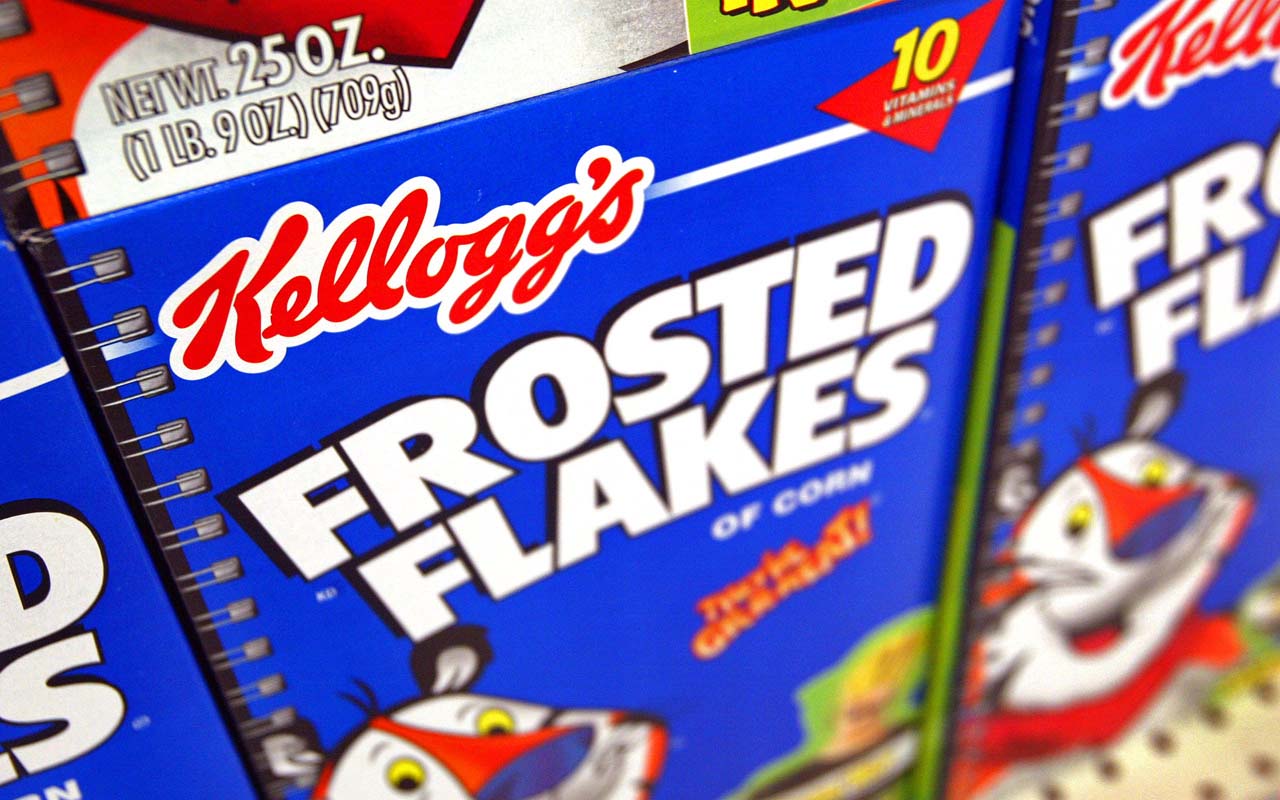
Kellogg
- Market value: $21.4 billion
- Dividend yield: 3.6%
If a recession is impending, consumer staple Kellogg (K, $62.68) could be among the best stocks to buy. That’s because its cereal division, as well as other quick breakfast items such as Nutri-Grain bars and Eggo frozen waffles, could benefit from consumers who need to spend less on food. During the 2008 recession, then-CEO David Mackay, who retired in 2011, suggested that the entire packaged-food industry benefited from frugal customers dining at home.
But Kellogg might be an interesting play if the economy keeps kicking, too.
Are you familiar with plant-based meat alternative Incogmeato? If you’re not, that’s probably because Kellogg only announced the new product line on Sept. 4, and it hasn’t even shown up in stores. (It will be available in early 2020.)
The company’s MorningStar Farms division, which is responsible for Incogmeato, is ready to battle it out in the highly competitive world of plant-based proteins. It currently boasts America’s top-selling veggie burger, and it also sells frozen and fully prepared chicken nuggets and tenders.
Kellogg is high on the “flexitarian” lifestyle – those people who eat meat but are opting to also have plant-based alternatives on a regular basis. A 2018 study found that 31% of Americans follow a flexitarian dietary lifestyle. That’s a much bigger market than the 13% identifying with vegan, vegetarian, or paleo diets.
“As more consumers are choosing a ‘flexitarian’ lifestyle and actively reducing meat, we’re thrilled to be extending the MorningStar Farms portfolio with a delicious and satisfying meat-like experience,” Sara Young, general manager of plant-based proteins at MorningStar Farms, said in the release announcing Incogmeato.
Piper Jaffray analyst Michael Lavery suggested in August that MorningStar Farms could be worth as much as $3 billion. Further, he speculated that Kellogg could spin off the division at some point in the future, although the company’s made no indication it is considering such a move. In July, Barron’s Brett Arends wrote that MorningStar Farms could be worth between $5 billion and $10 billion in an initial public offering (IPO).

Rollins
- Market value: $11.2 billion
- Dividend yield: 1.2%
Some of the best recession-resistant stocks come from boring, mundane products and services that are nonetheless necessary, no matter your financial situation.
Take Rollins (ROL, $34.22), the Atlanta-based owner of Orkin – a provider of pest and termite control services to residential and commercial customers in the U.S. and several other countries around the world.
Rollins services more than 2.4 million customers across more than 800 locations worldwide. And it has delivered 21 consecutive years of earnings growth, which includes two recessions, while also increasing its annual dividend by 12% or more for 17 consecutive years.
Interestingly, Rollins paid $62 million for Orkin in 1964. In 2018, Rollins generated $231.7 million in profits from $1.8 billion in revenues, much of it through the Orkin brand. Clearly, the acquisition was a game-changer for the Rollins family, who own more than 50% of its stock and still run the company.
Rollins still is wheeling and dealing, too. In Q2 2019, Rollins acquired California-based Clark Pest Control for $400 million, using a combination of cash and debt to finance the purchase. Clark, the eighth-largest pest management company in the U.S., also was family-owned and should be easily integrated into Rollins’ business.
Rollins increased its sales by 3% in 2008 – an indication that even the second-worst recession in American history couldn’t hold the company back. The stock lost 4%, which is excellent given how badly the market performed.
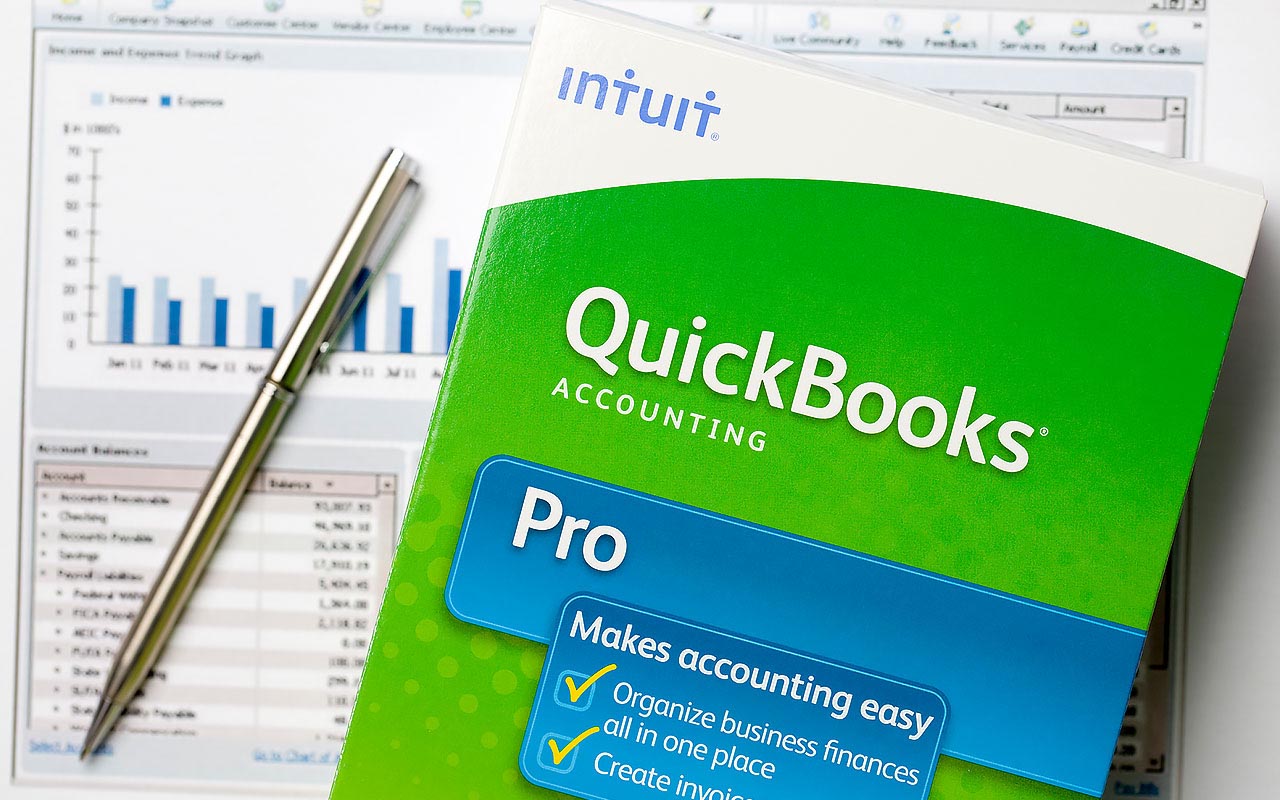
Intuit
- Market value: $69.4 billion
- Dividend yield: 0.8%
H&R Block (HRB) delivered a staggering 25.8% total return in 2008. That same year, Intuit (INTU, $266.76) stock delivered a total return of -24.7%, which was better than the index but considerably worse than its competitor.
However, Intuit was a much different business in 2008.
Since then, Intuit has acquired a number of fintech companies that have made its TurboTax and QuickBooks brands much stickier with consumers and businesses.
For example, Intuit generated $3.1 billion in revenues in fiscal 2008 from six product segments, flowing down to operating income of $1.3 billion. In the fiscal year ended July 31, 2019, Intuit had just three operating segments that brought in $6.8 billion in revenues, with operating income of $1.9 billion that was up 18% from fiscal 2018.
“Given Intuit’s dominant position in the DIY space, and the growing momentum behind its TurboTax Live offering in the assisted category, we believe another year of double-digit Consumer Tax growth is well within reach,” writes Stifel analyst Brad Reback.
Intuit’s self-service software, including TurboTax, which allows Americans to e-file simple tax returns online for free, will look attractive to consumers when times are tight.

AutoZone
- Market value: $25.5 billion
- Dividend yield: N/A
When money gets tight, people look to save money wherever they can.
Nowhere is that truer in the automotive business. When times are good, people hire a mechanic to fix their car or truck. In a recession, they try to do the repairs themselves, even when they know they’re not very handy. It’s human nature.
That’s why it shouldn’t come as a surprise that one of the S&P 500’s best-performing stocks of the 2008-09 bear market was AutoZone (AZO, $1,060.81), the nation’s largest retailer and distributor of automotive replacement parts and accessories. While most stocks were getting pummeled, AZO gained more than 16% on the year.
Of course, AutoZone has been fine since the recession. Its annualized total return of 21.3% between March 2009 and September 2019 is well ahead of the market’s 16.3% in that time.
AutoZone isn’t in perfect shape at the moment. It reported fiscal fourth-quarter earnings in late September, with revenues and adjusted earnings per share missing analyst expectations. But Stephens analyst Daniel Imbro, who rates AZO Overweight (equivalent to Buy) seems to think the business is doing just fine.
“AZO has additional commercial initiatives that should augment same store sales into FY20, and we believe the company will continue taking market share in both the DIY and (do-it-for-me) markets,” he wrote Sept. 25.
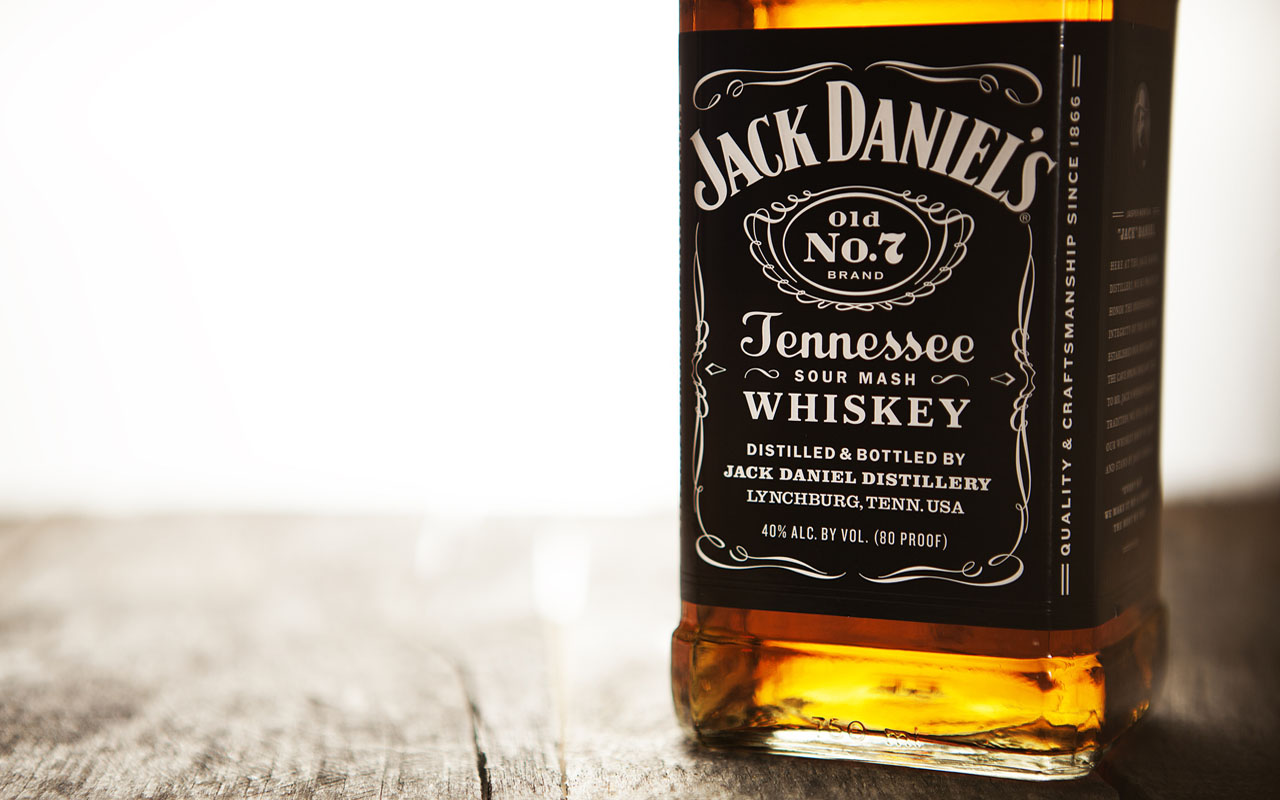
Brown-Forman
- Market value: $29.8 billion
- Dividend yield: 1.1%
- Brown-Forman (BF.B, $62.47), the family-controlled liquor company whose brands include Jack Daniel’s Tennessee Whiskey, produced a negative total return of 11.3% in 2008, roughly a third of the loss of the S&P 500.
Brown-Forman posted adjusted earnings of 95 cents per share in 2007, which housed only one month of the Great Recession. The year after? It was 96 cents per share – an indication that while many Americans suffered greatly, they weren’t about to give up a stiff drink now and again.
Brown-Forman has always found a way to grow in even the most difficult economic environments. However, CEO Lawson Whiting, a 22-year veteran of the company that was installed Jan. 1 of this year, certainly has his work cut out for him. That’s because the company, along with the rest of the spirits business, has been seriously affected by the European Union and China’s retaliation to President Trump’s tariff and trade war.
“In a way, the American whiskey tariffs are a tariff on Brown-Forman because we have a 60% share of American whiskey in Europe. We are by far the most affected company – no one else is even close,” Whiting said in the July 2019 edition of The Spirits Business magazine.
In fiscal 2019, Brown-Forman’s revenues grew 2% on a reported basis, with tariffs lowering sales by one percentage point. That compares to an 8% increase a year earlier. However, even though a protracted trade war would continue to act as a big headwind to the company’s sales in Europe, it still expects fiscal 2020 results to be healthy. Brown-Forman is forecasting an underlying improvement in net sales of 5% to 7%, feeding underlying net income growth of 3% to 5%.
Brown-Forman might face an unusual headwind at the moment, but its moves into both Irish whiskey (Slane, 2015) and Scotch whisky (Glendronach, Benriach and Glenglassaugh, 2016) should help offset the tariff-related hit to its American whiskey business.
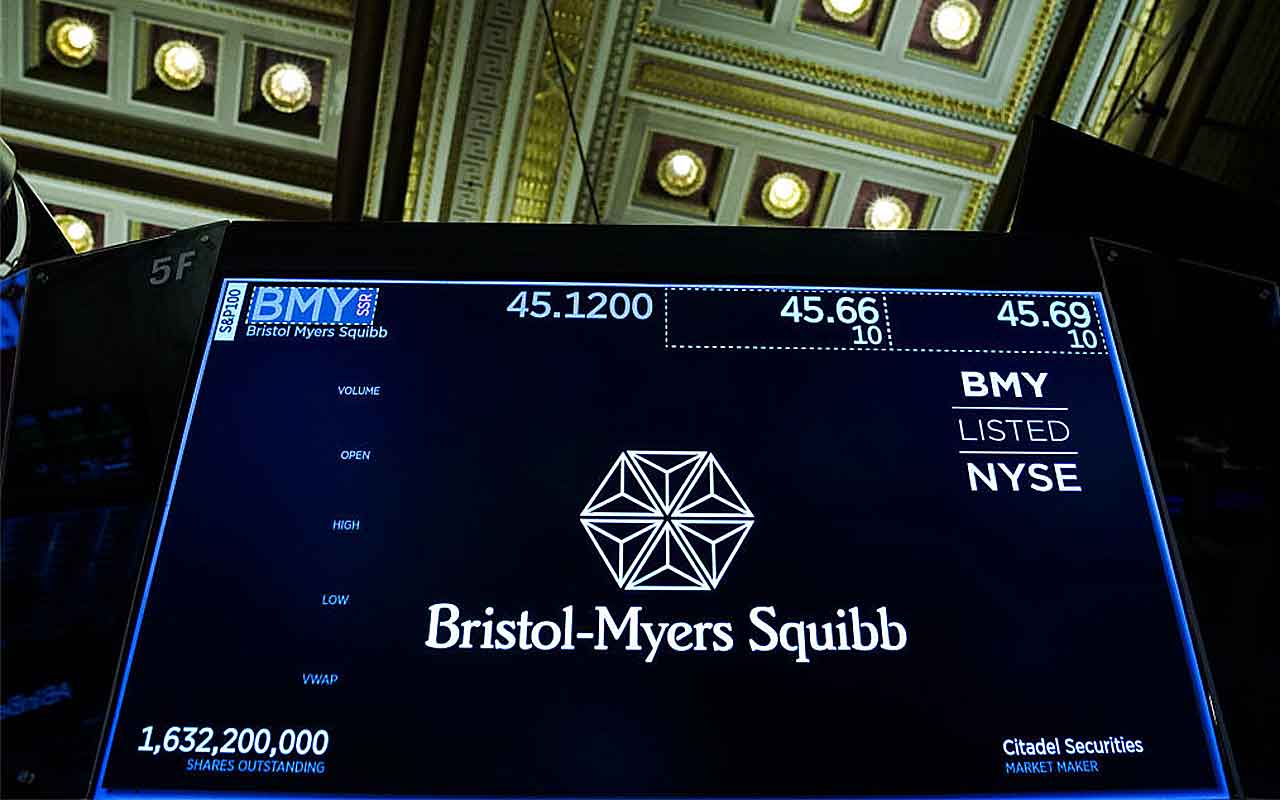
Bristol-Myers Squibb
- Market value: $83.2 billion
- Dividend yield: 3.2%
Richard Shaw, principal and portfolio manager at investment research firm QVM Group LLC, compared 6,824 NYSE and NASDAQ stocks in 2012, looking for those special stocks that managed to survive the 2008 crash and thrived during the 2010 and 2011 corrections. He came up with just 48 stocks that met his criteria.
- Bristol-Myers Squibb (BMY, $50.88) – which lost just 6% in 2008 and gained 8.7% in 2010 and 39.4% in 2011 – was one of them.
In terms of defensive stocks, you can’t get much better than this maker of franchise drugs such as Opdivo, Yervoy and Sprycel. Bristol-Myers is a big-moated pharmaceutical stock that’s difficult to unseat. With the $74 billion acquisition of Celgene (CELG), which is expected to close by the end of 2019, BMY’s moat will become even bigger.
BMY’s cancer business will get even stronger with the addition of Celgene’s Revlimid. Secondly, as part of getting regulatory approval for its acquisition, it is selling Otezla, the company’s psoriasis treatment, to Amgen (AMGN) for $13.4 billion. Bristol-Myers plans to use the proceeds of the sale to repurchase shares, repay debt and increase its annual dividend.
Although it is expected to grow earnings by just 7% in 2019 and 4% in 2020, it trades at just 8.3 times analysts’ expectations for next year’s earnings – well below its five-year average of 20.6, making it cheaper than it has been in many years.
Add in a generous 3.2% yield, and this recession-resistant stock should be attractive to value and income investors alike.
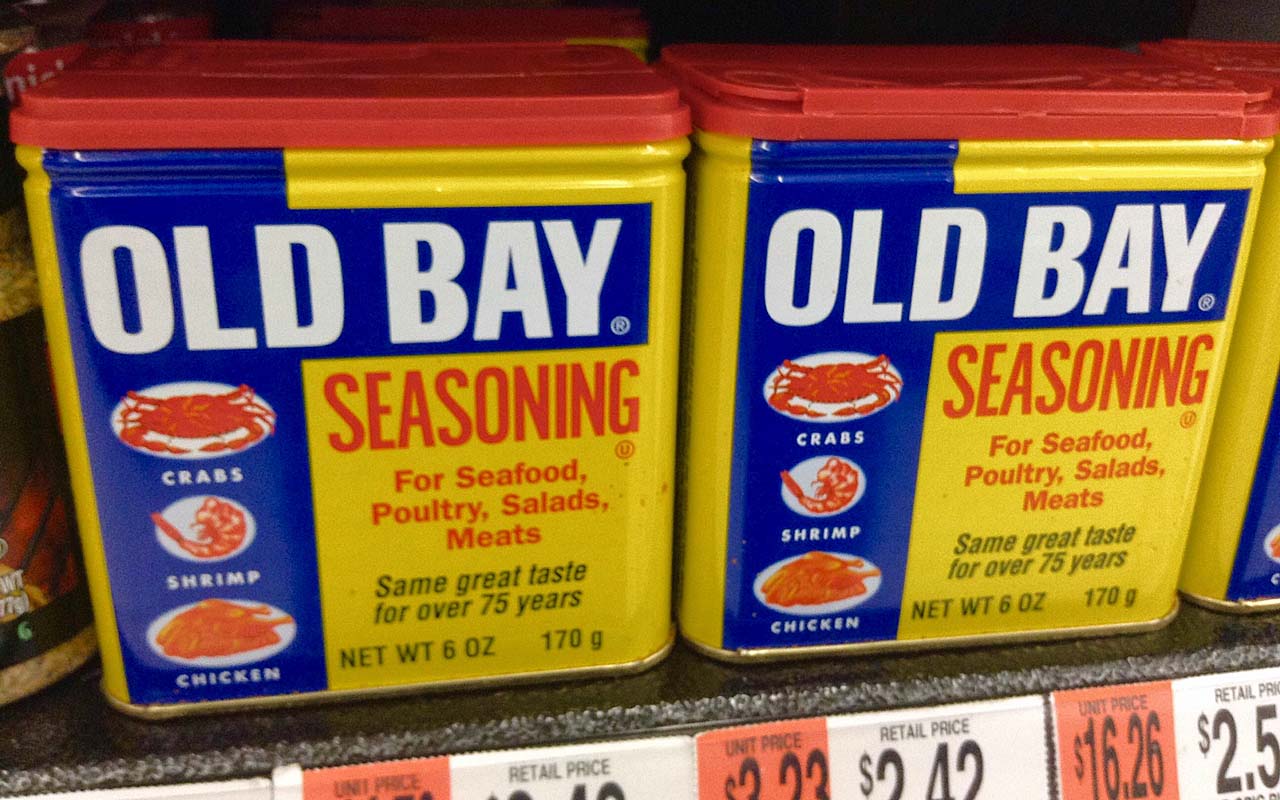
McCormick
- Market value: $22.4 billion
- Dividend yield: 1.4%
- McCormick (MKC, $168.22) is one of the world’s leading providers of spices, seasonings, and flavorings, with brands including McCormick, Club House, Lawry’s, Zatarains, Frank’s RedHot and French’s. It’s also another of those special 48 stocks that performed admirably in the 2008 recession (-14%), as well as during 2010 (+32%) and 2011 (+11%).
It makes sense. People tend to go out to eat less during recessions, opting to cook at home instead. Anyone who doesn’t want bland food will have to rely on companies such as McCormick. Its leadership position in spices and seasonings provides it with a wide moat.
The company’s flavor solutions business continues to grow thanks to Generation Z, who are 85 million strong, and the most ethnically diverse generation in U.S. history. With $500 billion in buying power, Gen Z consumers are looking for authentic flavors – something McCormick is able to provide.
Moreover, 20% of the company’s global sales come from developing markets. And that number is rising.
By shifting to more-valued added flavor products, McCormick has been able to grow top-line sales by more than 10% annually, while also expanding its margins. In 2016, it had an adjusted operating margin of 10.4%. Two years later, that number grew by 380 basis points to 14.2%.
That, as well as a focus on cost-cutting initiatives, sets McCormick nicely among the most recession-resistant stocks to buy now.

Hormel Foods
- Market value: $23.3 billion
- Dividend yield: 1.9%
- Hormel Foods (HRL, $43.70) – the consumer staples stock behind Spam, Skippy peanut butter, and Hormel meats – is one of those slow-and-steady food stocks that has delivered for shareholders over the long haul. It’s one of the 57 Dividend Aristocrats – those S&P 500 companies who’ve increased their annual dividend for at least 25 consecutive years. HRL has increased its dividend for 53 consecutive years, funding that with growing profits in 28 of the past 32 years.
You’re not going to get rich quick by owning Hormel, but patient investors will be rewarded. It has generated 13.8% average annual returns over the past five years, and 21.8% over the past 10. During 2008, Hormel’s stock lost almost 22% of its value, which is still considerably better than the market. Following the recession, Hormel has put up positive returns in nine of the past 10 years.
Like Kellogg and other large food companies, Hormel has been forced to make changes to the type of products it sells to address the consumer’s move to eating healthier. For instance, in early September, it announced that it was launching Happy Little Plants under its Cultivated Foods umbrella. The flagship product is a ground plant-based protein alternative with 20 grams of non-GMO soy protein with no preservatives, no cholesterol and just 180 calories.
“We understand consumers across a spectrum of lifestyles are adopting more flexible attitudes and behaviors when thinking about food, especially given the wide variety of products available in the marketplace,” Jim Splinter, group vice president of corporate strategy at Hormel Foods, said in a release. “We intend to focus on all the ways plants can help consumers find alternatives in their food routines.”

Visa
- Market value: $391.8 billion
- Dividend yield: 0.6%
- Visa (V, $174.90) has exploded by nearly 15-fold since its March 20, 2008, initial public offering – at the time, the largest IPO in U.S. history.
“Visa is a global card Goliath that ... owns one of the most recognized and respected brands in the world,” Morningstar analyst Michael Kon wrote in a research note in March 2008. “It is very hard to build any network, but duplicating Visa’s is almost impossible.”
Not much has changed since then. Nothing has put a dent in Visa’s business model despite rapid growth from upstart fintech competitors. In fact, Visa is embracing emerging financial technologies to maintain its leadership position.
Visa announced Sept. 30 that it was expanding its partnership with London-based European fintech Revolut – a digital banking company that offers free international money transfers, fee-free spending and even a cryptocurrency exchange. The arrangement will help Revolut expand its digital financial services offerings to 24 new markets, including the U.S., Canada, Australia and Japan.
“With Visa being accepted at nearly 54 million merchant locations across more than 200 countries, we have the scale, experience and expertise to help fintechs like Revolut go global,” Visa Chief Product Officer Jack Forestall said in a release.
That’s the beauty of Visa. Despite being late to the fintech explosion, up-and-coming businesses still want to partner with the company because of its position within the global financial services industry.
While Visa’s business no doubt would feel the pinch of a recession, as people simply spend less, the ubiquity of credit-card and mobile payments here, and its growth worldwide, will help insulate it somewhat. Its lack of exposure to actual consumer credit (Visa is a payment processor, after all, not a bank) is attractive, too. So is its extremely safe dividend, which has been growing like a weed.
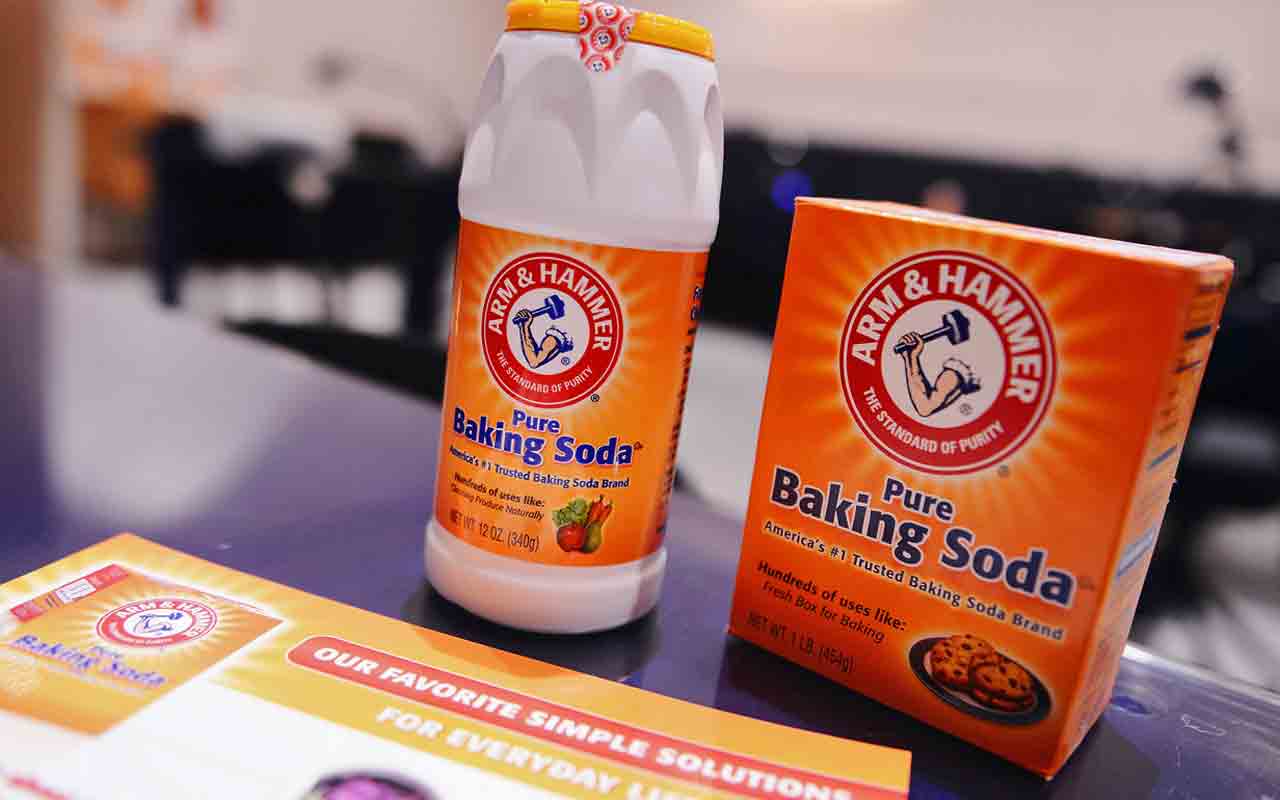
Church & Dwight
- Market value: $18.8 billion
- Dividend yield: 1.2%
- Church & Dwight (CHD, $76.05) is the owner of consumer brands such as Arm & Hammer, OxiClean and Orajel, and it is an amazingly resilient stock. Since 2000, it has finished only two years – 2000 (-15.4% total return) and 2005 (-1.1%) – in negative territory. In 2008, it actually gained 4.4%.
So CHD has posted 13 consecutive years with a positive return, and with a nearly 17% gain in 2019, it looks like it’s on its way to No. 14. Indeed, while Church & Dwight certainly belongs on this list of recession-resistant stocks to buy, maybe it’s better to consider it as a stock to own in good times and bad.
Spruce Point Capital Management might disagree. The New York-based investment manager, which is short CHD, released a report in early September titled Arm Yourself to Get Hammered. The report argues the company uses aggressive accounting practices to grow its business and claims Church & Dwight shares could decline 35% to 50%.
Rightly, Church & Dwight management have said little about the allegations. It told CNBC in a response statement that “We have confidence in our long-term plan to deliver superior returns based on our ‘evergreen business model,’ and our strong second-quarter results demonstrate our continued momentum.”
A more convincing response was some mid-September insider buying. CEO Matthew Farrell acquired approximately 7,000 shares on Sept. 16 at an average price of $71.32 per share, representing a roughly 10% decline since the release of Spruce Point’s report. Barron’s categorized it as his “biggest open-market stock purchase in years.” A few other insiders used the dip to buy on the open market.

iShares Gold Trust
- Market value: $16.7 billion
- Dividend yield: N/A
- Expenses: 0.25%, or $25 annually on a $10,000 investment
Gold is an age-old hedge against worries such as inflation and economic unrest. A few people hold it as a backup currency for the end times … but most people invest in it because it’s an uncorrelated asset that can diversify their portfolios.
Gold bulls have been rewarded recently, with recession fears driving gold prices to levels not seen in at least five years. More of the same could touch off even more buying.
“Fundamentally there are currently enough reasons for a continuation of the rally,” Florian Grummes, Midas Touch Consulting gold market analyst, told Kitco on Sept. 27. “Indeed, in this context, even a veritable gold rush in the markets is possible in the next three to four months.”
You could buy physical gold – though that would require also having somewhere to safely store the gold, insuring it, then finding someone to buy it when you’re done. Or you could just buy shares in one of several gold ETFs that represent physical bullion held elsewhere.
The iShares Gold Trust (IAU, $14.28) is the second-largest gold ETF at $16.7 billion in assets under management. The fund holds more than 11 million ounces of gold in trust for its unitholders. And better still, it is 15 basis points (a basis point is one one-hundredth of a percentage point) cheaper than its biggest competitor, SPDR Gold Shares (GLD). All this makes IAU an ideal way to play the yellow metal if you’re just looking for protection during a short-lived economic downturn.
Just remember: Most advisers recommend up to a 5% stake in gold, but not much more.
Profit and prosper with the best of Kiplinger's advice on investing, taxes, retirement, personal finance and much more. Delivered daily. Enter your email in the box and click Sign Me Up.

Will has written professionally for investment and finance publications in both the U.S. and Canada since 2004. A native of Toronto, Canada, his sole objective is to help people become better and more informed investors. Fascinated by how companies make money, he's a keen student of business history. Married and now living in Halifax, Nova Scotia, he's also got an interest in equity and debt crowdfunding.
-
 Ask the Tax Editor: Federal Income Tax Deductions
Ask the Tax Editor: Federal Income Tax DeductionsAsk the Editor In this week's Ask the Editor Q&A, Joy Taylor answers questions on federal income tax deductions
-
 States With No-Fault Car Insurance Laws (and How No-Fault Car Insurance Works)
States With No-Fault Car Insurance Laws (and How No-Fault Car Insurance Works)A breakdown of the confusing rules around no-fault car insurance in every state where it exists.
-
 7 Frugal Habits to Keep Even When You're Rich
7 Frugal Habits to Keep Even When You're RichSome frugal habits are worth it, no matter what tax bracket you're in.
-
 What Fed Rate Cuts Mean For Fixed-Income Investors
What Fed Rate Cuts Mean For Fixed-Income InvestorsThe Fed's rate-cutting campaign has the fixed-income market set for an encore of Q4 2024.
-
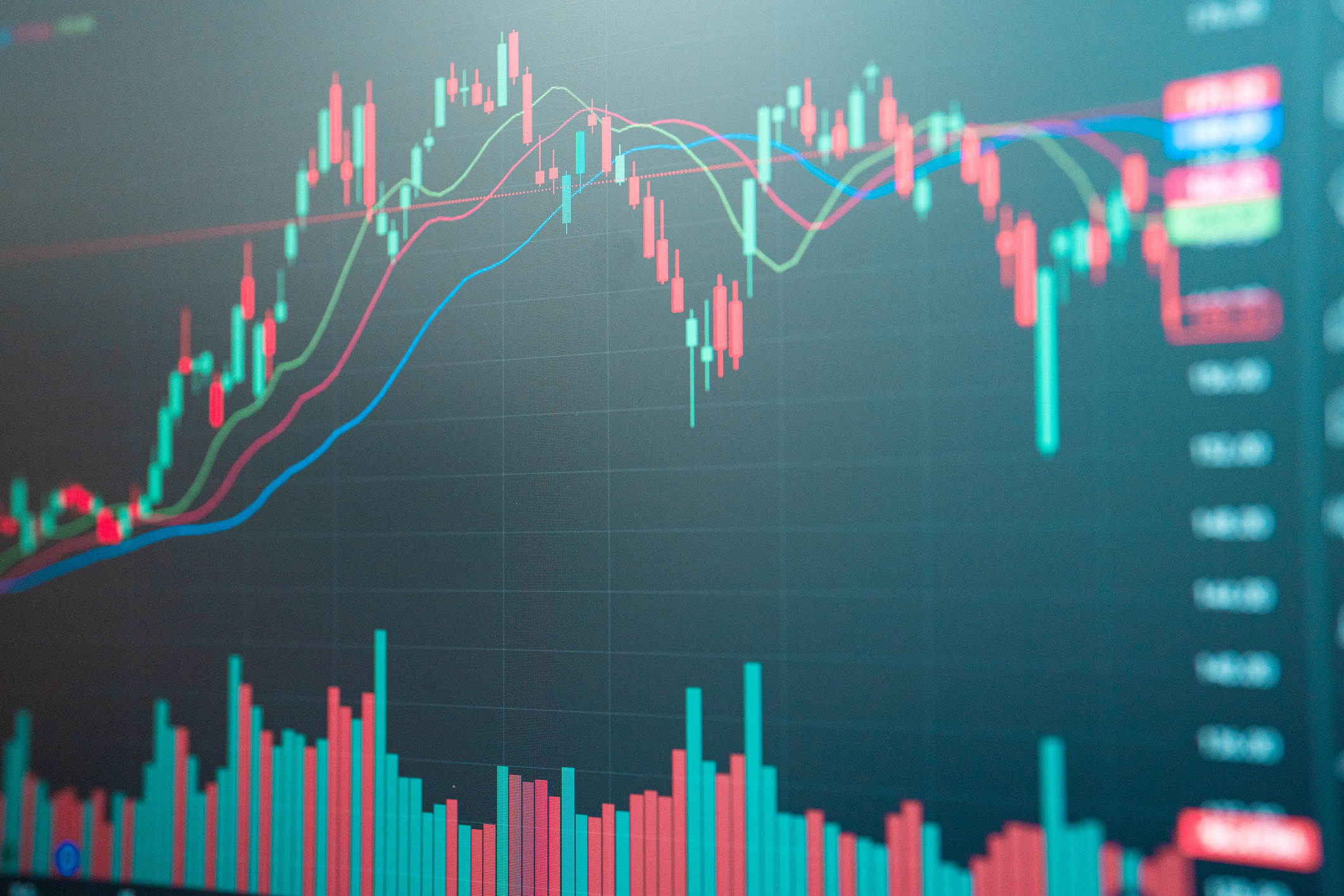 Dow Climbs 559 Points to Hit a New High: Stock Market Today
Dow Climbs 559 Points to Hit a New High: Stock Market TodayThe rotation out of tech stocks resumed Tuesday, with buying seen in more defensive corners of the market.
-
 Stocks Rally as Investors Buy the Dip: Stock Market Today
Stocks Rally as Investors Buy the Dip: Stock Market TodayMost sectors are "go" only a day after talk of bubbles, extended valuations and narrow breadth undermined any kind of exuberance.
-
 The Most Tax-Friendly States for Investing in 2025 (Hint: There Are Two)
The Most Tax-Friendly States for Investing in 2025 (Hint: There Are Two)State Taxes Living in one of these places could lower your 2025 investment taxes — especially if you invest in real estate.
-
 The Final Countdown for Retirees with Investment Income
The Final Countdown for Retirees with Investment IncomeRetirement Tax Don’t assume Social Security withholding is enough. Some retirement income may require a quarterly estimated tax payment by the September 15 deadline.
-
 Stocks Rally on Apple Strength: Stock Market Today
Stocks Rally on Apple Strength: Stock Market TodayThe iPhone maker will boost its U.S. investment by $100 billion, which sent the Dow Jones stock soaring.
-
 What to Do With Your Tax Refund: 6 Ways to Bring Growth
What to Do With Your Tax Refund: 6 Ways to Bring GrowthUse your 2024 tax refund to boost short-term or long-term financial goals by putting it in one of these six places.
-
 Stock Market Today: Stocks Struggle After Trump's EU Tariff Threats
Stock Market Today: Stocks Struggle After Trump's EU Tariff ThreatsStocks pared early gains after Trump threatened the European Union with 25% tariffs.
